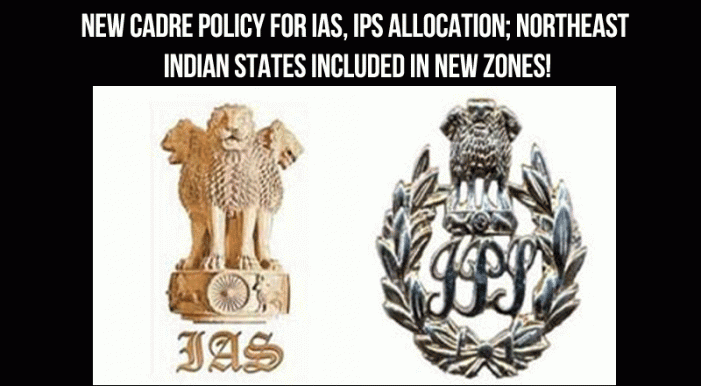GUJARAT
- MP says no to lions from Gujarat.
- With Gujarat showing no signs of parting with its lions in the wild to be translocated to Kuno Palpur despite a 2014 Supreme Court order, the Madhya Pradesh government has made a move to source lions from zoos across India for the newly prepped sanctuary spread over 344 sq km.
- Ironically, the neighbouring state has underscored it does not want lions from Gujarat zoos.
- In a proposal to the Centre, the MP forest department has sought lions from various zoos across the country barring Gujarat. The proposal cites that the MP forest department wants Asiatic lions from various zoos in order to create a separate gene pool of lions which is distinct from Gujarat lions.
- Gir in Gujarat is the last abode of Asiatic lion with 523 lions as per 2015 census. The idea behind the Kuno-Palpur project was to raise a buffer population of wild lions as an insurance against epidemics or natural disasters wiping out the Gir lions. To substantiate their claims of releasing zoo big cats in wild, MP has stated that they have the experience to reintroducing orphaned tiger cubs in the wild after raising them and making them expert hunters.
INTERNATIONAL
- Uruguay – world’s first country to legally sell marijuana in pharmacies
- Uruguay became thefirst countryin the world to legally sell marijuana over the counter in pharmacies.
- The South American country had already legalized cultivation, distribution and consumption of marijuana in 2013 but authorization for pharmacies has not been secured until now. Marijuana dispensed in pharmacies starting in the last month.
- Pakistan PM travels to Saudi on his first official visit abroad
- Pakistan’s new Prime Minister Shahid Khaqan Abbasi on Wednesday travelled to Saudi Arabia on a day-long visit — his first foreign trip since assuming office — to discuss bilateral ties with top Saudi leadership.
- Abbasi, 58, was sworn-in as Pakistan’s 18th Prime Minister on August 1 after the Supreme Court disqualified the incumbent Nawaz Sharif for dishonesty following the Panama papers scandal.
NATIONAL
- Govt finalizes new cadre policy of IAS,IPS,IFOS.
- A new policy for cadre allocation has been finalised by the Central government for Indian Administrative Service (IAS), Indian Police Service (IPS) and other officers, aimed at ensuring “national integration” in the country’s top bureaucracy.
- Officers of all-India services—the IAS, IPS and Indian Forest Service (IFS)—will have to choose cadres from a set of zones instead of states.
- The officers of the three services are at present allocated a cadre state or a set of states to work in. They may be posted on central deputation during the course of their service after fulfilling certain eligibility conditions.
- The existing 26 cadres have been divided into five zones in the new policy proposed by the ministry of personnel, public grievances and pensions.
- Zone-I has seven cadres—AGMUT (also known as Arunachal Pradesh-Goa-Mizoram and Union Territories), Jammu and Kashmir, Himachal Pradesh, Uttarakhand, Punjab, Rajasthan and Haryana.
- Zone-II consists of Uttar Pradesh, Bihar, Jharkhand and Odisha.
- Zone-III comprises Gujarat, Maharashtra, Madhya Pradesh and Chhattisgarh.
- Zone-IV comprises West Bengal, Sikkim, Assam-Meghalaya, Manipur, Tripura and Nagaland.
- Zone-V will have Telangana, Andhra Pradesh, Karnataka, Tamil Nadu and Kerala.
- Supreme Court declares Right to Privacy as Fundamental Right.
- The Supreme Court of India pronounced that individual privacyis a fundamental right protected by the Constitution.
- A nine-judge Constitution Bench of the Supreme Court, led by Chief Justice of India J.S. Khehar ruled that the right to privacy is intrinsic to life and liberty, thus coming under Article 21, and comes to the various fundamental freedoms in PART III of the Indian Constitution.
- With this now India has total seven fundamental rights.
- The Fundamental rights are Right to equality, Right to freedom, Right against exploitation, Right to freedom of religion, Cultural and Educational rights, and Right to constitutional remedies are the 6 fundamental rights of India.
- OBC Creamy layer limit has been increased.
- The Union Cabinet also increased the “creamy layer” ceiling for the Other Backward Classes to ₹8 lakh per annum from the existing ₹6 lakh for Central government jobs. This means that the umbrella of reservation is widened and those earning up to ₹8 lakh per annum would now get the benefits.
Sub categorization in Other backward castes
- To create ‘quota within quota’, the Union Cabinet on Wednesday approved the setting up of a commission to examine the matter of sub-categorisation of Other Backward Classes (OBCs). The commission has been mandated to submit is report within 12 weeks from the date of appointment of the chairperson.
- The commission, to be set up under Article 340 of the Constitution, will identify the respective castes/communities/sub-castes/synonyms in the Central list and classify them into sub-categories.
- It noted that 10 States — Andhra Pradesh, Telangana, Puducherry, Karnataka, Haryana, Jharkhand, West Bengal, Bihar, Maharashtra and Tamil Nadu – had already carried out sub-categorization of OBCs.
GPSC Notes brings Prelims and Mains programs for GPSC Prelims and GPSC Mains Exam preparation. Various Programs initiated by GPSC Notes are as follows:-
- GPSC Mains 2025 Tests and Notes Program
- GPSC Prelims Exam 2025- Test Series and Notes Program
- GPSC Prelims and Mains 2025 Tests Series and Notes Program
- GPSC Detailed Complete Prelims Notes

